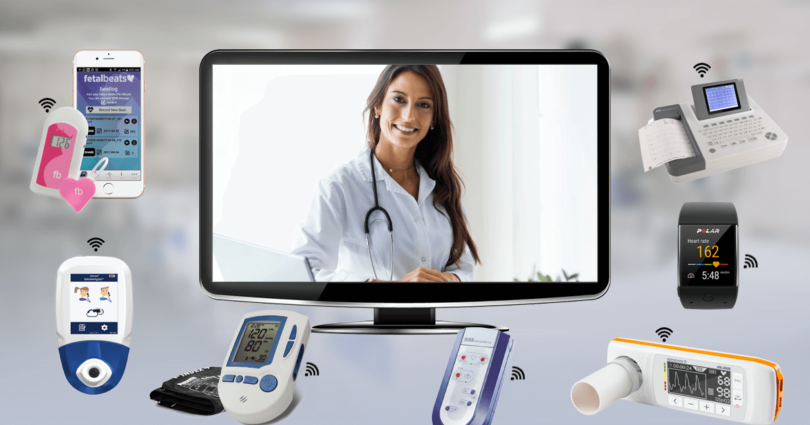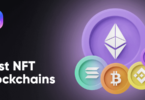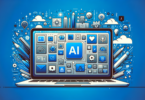The healthcare landscape is changing rapidly, with technology leading the way. Digital health solutions, such as telemedicine apps and remote health monitoring, are transforming how healthcare is delivered. Patients and healthcare providers can now connect virtually, breaking down barriers that traditionally limited access to medical care. This article delves into the world of digital health, focusing on the benefits, advancements, and future potential of telemedicine and remote health monitoring.
The Rise of Digital Health Solutions in Modern Healthcare
Digital health solutions are redefining the way we think about healthcare. These innovations have the potential to improve patient outcomes, streamline healthcare delivery, and reduce costs. From the convenience of telemedicine apps to the precision of remote health monitoring, patients now have more options than ever before to manage their health.
Telemedicine Apps: A Game-Changer in Healthcare
The use of telemedicine apps has skyrocketed in recent years, particularly after the global pandemic. These apps allow patients to consult with doctors through video calls, reducing the need for in-person visits. Telemedicine apps provide a convenient, efficient, and accessible way for people to receive medical care from the comfort of their own homes.
How Telemedicine Apps Work
Telemedicine apps operate by connecting patients with healthcare providers via their smartphones, tablets, or computers. Patients can schedule appointments, discuss symptoms, receive diagnoses, and even get prescriptions, all through a secure online platform. This seamless process saves time and eliminates the hassle of traveling to a clinic or hospital.
Benefits of Telemedicine Apps for Patients and Providers
For patients, telemedicine apps offer unparalleled convenience. They can avoid long wait times, reduce travel costs, and access healthcare even in remote locations. Healthcare providers benefit from these apps by being able to manage more patients, streamline operations, and focus on those who need in-person care the most.
Remote Health Monitoring: Keeping Track of Your Health in Real Time
Remote health monitoring is another breakthrough in digital health solutions. This technology allows patients to track their vital signs, symptoms, and overall health through wearable devices or apps. Doctors can monitor this data remotely, offering timely interventions if necessary.
How Remote Health Monitoring Works
Using wearables like fitness trackers, smartwatches, or even smartphones, patients can record their heart rate, blood pressure, oxygen levels, and more. This data is then transmitted to healthcare providers, who can analyze trends, detect abnormalities, and provide immediate feedback to patients.
Advantages of Remote Health Monitoring
The biggest advantage of remote health monitoring is its ability to offer continuous, real-time data. This enables early detection of potential health problems, allowing for quicker interventions and better patient outcomes. For chronic disease management, such as diabetes or hypertension, remote monitoring helps patients stay on track with their health goals.
Telemedicine vs. Remote Health Monitoring: What’s the Difference?
While both telemedicine and remote health monitoring fall under the digital health umbrella, they serve distinct purposes. Telemedicine focuses on virtual consultations between patients and healthcare providers, whereas remote health monitoring emphasizes ongoing tracking of patient data. Together, these technologies offer a comprehensive approach to healthcare.
The Integration of Telemedicine and Remote Monitoring in Chronic Disease Management
Chronic diseases such as diabetes, heart disease, and respiratory conditions require ongoing care and monitoring. The combination of telemedicine apps and remote health monitoring can greatly enhance the management of these conditions by providing continuous support and easy access to healthcare providers.
Improving Healthcare Access in Remote Areas
One of the most significant benefits of digital health solutions is their ability to provide healthcare access to those in remote or underserved areas. With telemedicine apps, patients who live far from healthcare facilities no longer need to travel long distances for consultations. Additionally, remote health monitoring allows doctors to keep an eye on patients even when they are miles away.
The Role of AI and Machine Learning in Digital Health Solutions
Artificial Intelligence (AI) and Machine Learning (ML) are becoming integral parts of digital health solutions. These technologies can help analyze vast amounts of patient data from remote health monitoring devices, providing healthcare providers with valuable insights. AI can also assist in diagnosing conditions and predicting health outcomes, further enhancing the efficiency of telemedicine apps.
Addressing Privacy and Security Concerns in Telemedicine
With the rise of telemedicine apps and remote health monitoring, concerns about patient privacy and data security have also increased. Healthcare providers and app developers must ensure that patient data is encrypted and protected. Many telemedicine platforms use secure, HIPAA-compliant systems to safeguard sensitive health information.
Digital Health Solutions and the Future of Healthcare
The future of healthcare is undeniably digital. With advancements in telemedicine apps, remote health monitoring, AI, and wearable technology, patients will have more control over their health than ever before. These technologies not only improve patient outcomes but also reduce healthcare costs and increase accessibility for all.
Challenges Facing the Adoption of Digital Health Solutions
Despite the numerous benefits, the adoption of telemedicine apps and remote health monitoring is not without challenges. Limited internet access in some regions, technological literacy among older populations, and the cost of devices are all barriers that need to be addressed to ensure these solutions are accessible to everyone.
How Healthcare Providers Can Leverage Digital Health Technologies
Healthcare providers must embrace digital health solutions to stay ahead in an increasingly tech-driven industry. By integrating telemedicine apps and remote health monitoring into their practices, they can offer patients more personalized care, improve communication, and make informed decisions based on real-time data.
The Importance of Patient Education in Digital Health
For telemedicine apps and remote health monitoring to reach their full potential, patients must be educated on how to use these technologies effectively. Healthcare providers should offer guidance on using telemedicine platforms and wearable devices, as well as explain how patients can benefit from regular health monitoring.
Conclusion
Digital health solutions like telemedicine apps and remote health monitoring are transforming the healthcare industry. They offer convenience, improve patient outcomes, and enhance access to healthcare services, especially for those in remote areas. As technology continues to advance, the future of healthcare will be more connected, efficient, and patient-centered.
FAQs
1. What are telemedicine apps? Telemedicine apps are digital platforms that allow patients to consult with healthcare providers remotely via video calls, audio chats, or messaging.
2. How does remote health monitoring work? Remote health monitoring uses devices like wearables to collect health data, which is then sent to healthcare providers for analysis.
3. What are the benefits of digital health solutions? The benefits include convenience, improved patient outcomes, real-time monitoring, and enhanced access to healthcare in remote areas.
4. Can telemedicine apps replace in-person visits? While telemedicine apps are highly useful, they may not replace all in-person visits, especially for complex or urgent health issues.
5. Are telemedicine apps secure? Yes, most telemedicine platforms use secure, encrypted systems that comply with healthcare privacy laws like HIPAA.






